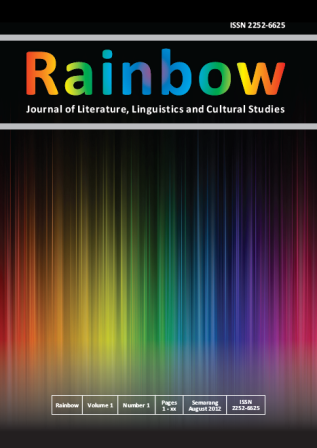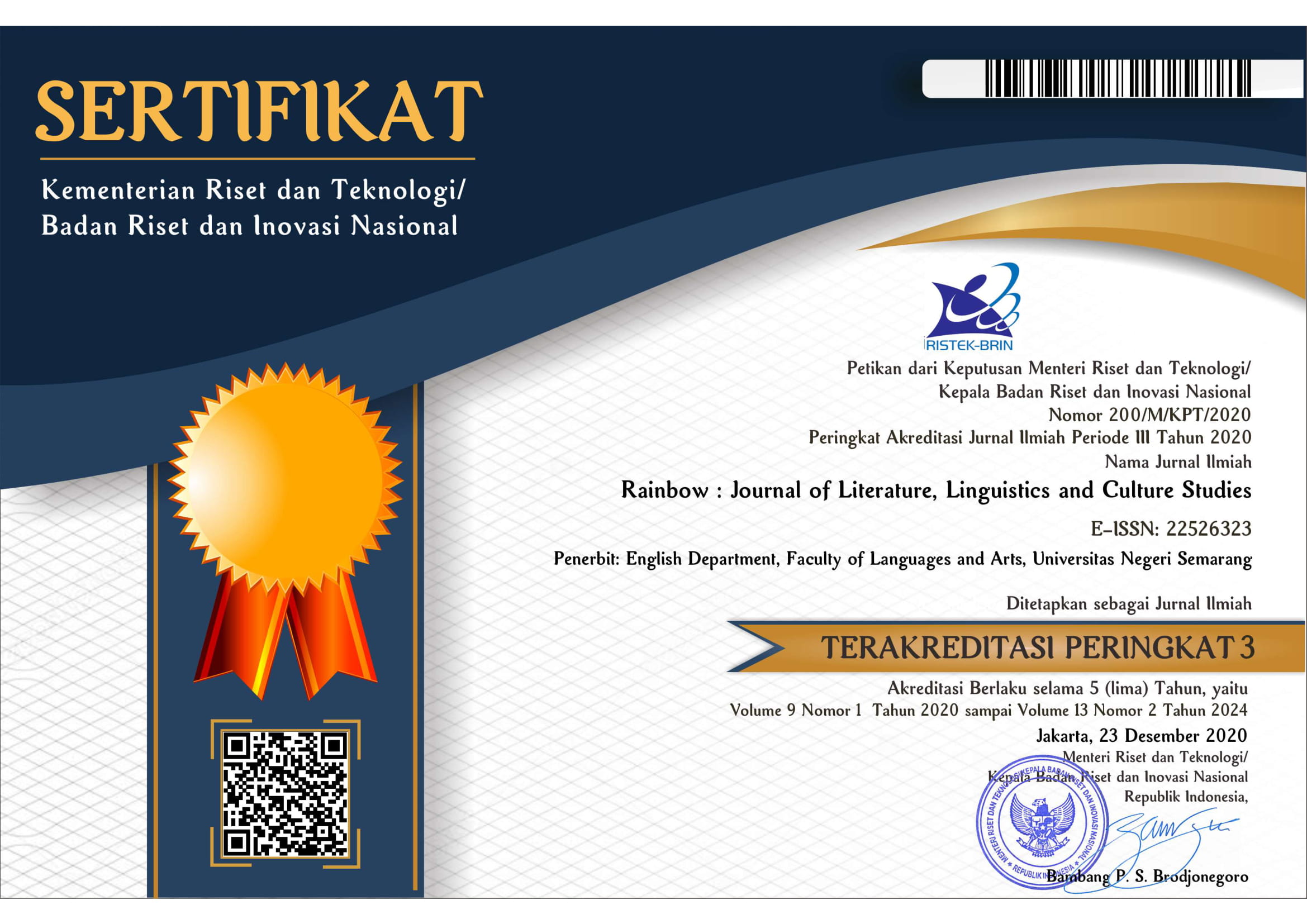THE LOOSING SOUL IN GHAZAL 119 POEM BY JALALUDDIN RUMI
Abstract
This study is a brief explanation of the description of the loosing soul in Rumi’s Ghazal 119 poem and the explanation of the representation of Rumi’s unconsciousness. The analysis used the method of documentation, reduction, and data display. The roles of the researcher are data collector, classifier, analyzer, and interpreter. The result of the study proved that the loosing soul had been discovered trough bad characters and behavior of the narrator’s companion which appeared in the poem. Furthermore, Rumi’s unconsciousness had been discovered as the way of thinking which was influenced by the soul. Then, the way of thinking would also affect someone’s characters and choice of life. The soul has the biggest influence because it is the center of human being which controls the whole body. Thus, soul must be filled with sweetness, tenderness, and spiritualism.References
Al-Ghazali. (2010). Kitdb sharh 'ajri'ib al-qalb [The Marvels of the Heart]. In Skellie W.J. Retrieved from USA: Fons Vitae.
Aron. (2011). Difference Between Traditional Society and Modern Society. Retrieved from http://www.differencebetween.com/difference-between-traditional-society-and-vs-modern-society/.
BBC. (2009). Jalaluddin Rumi. Retrieved from http://www.bbc.co.uk/religion/religions/islam/art/rumi_1.shtml#top.
Campo, Juan E. (2009). Encyclopedia of Islam [DX Reader version]. Retrieved from https://books.google.co.id/books?id.
Crivellato, Enrico & Ribatti, Domenico. (2006). Soul, Mind, Brain: Greek Philosophy And The Birth of Neuroscience. Brain Research Bulletin. Pp. 327- 336. doi:10.1016/j.brainresbull.2006.09.020.
Rapaport, Herman. (2011). The Literary Theory Toolkit. United Kingdom: Wiley- Black well.
Jung, Carl Gustav. (1959). AION Researches Into the Phenomenology of The Self. In R. F. C. Hull (Ed & Trans.). Retrieved from http://minhateca.com.br/Palavra_Nunca/Documentos/01+-+Pensadores/00+-+Jung/Obras+completas+-+ingl*c3*aas/PDF (Original work published 1951).
Jung, Carl Gustav. (1969). The Structure and Dynamics of The Self (2nd ed.). In R. F. C. Hull (Ed & Trans.). C. J. Jung The Collected Works (Vol 8). Retrieved from http://michaelsudduth.com/wp-content/uploads/2013/03/116077287-Collected-Works-of-C-G-Jung-Vol-08-the-Structure-and-Dynamics-of-the-Psyche-Syncronicity.pdf.
Lambert, Vickie A. and Lambert, Clinton E. (2012). Qualitative Descriptive Research: An Acceptable Design. Pacific Rim International Journal of Nursing Research, vol. 16, Pp. 255-256. Retrieved from http://www.tci-thaijo.org/index.php/PRIJNR/article/view/5805/5064.
Miles, M. B., and Huberman, A.M. (1984). Qualitative Data Analysis: Handout. Retrieved from http://www.finchpark.com/ppp/qual-analysis/Qualitative_Data_Analysis_Handout.pdf.







